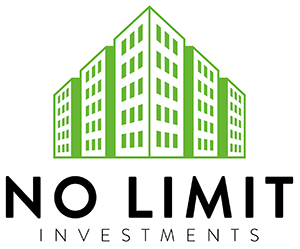What Defines Hard Money vs. Traditional Loans?
When looking at financing options, two major categories often come up: hard money loans and traditional loans. Traditional loans are typically offered by banks or credit unions, requiring extensive documentation, good credit, and long approval times. Hard money loans, in contrast, are usually funded by private investors or specialized lenders, focusing on the property’s value rather than the borrower’s credit profile (Consumer Financial Protection Bureau).
How Do Hard Money Loans Work?
Hard money loans are short-term financing solutions that use real estate as collateral. They generally last from 6 to 24 months, making them ideal for projects where quick turnaround is essential, such as fix-and-flip investments. Approval is faster, often within days, since lenders prioritize the property’s after-repair value (ARV) over traditional credit metrics. However, they come with higher interest rates and fees (Investopedia).
Investors who specialize in flipping houses often rely on services like fix & flip loans or BRRRR financing (Buy, Rehab, Rent, Refinance, Repeat). These products allow them to secure funds quickly, renovate, and reposition properties without waiting on bank timelines.
What Are the Features of Traditional Loans?
Traditional loans, such as mortgages from banks, follow stricter underwriting guidelines. They usually have lower interest rates, longer repayment terms, and stricter borrower qualifications. The application process may involve proof of income, employment verification, strong credit history, and detailed financial records (Federal Reserve).
For investors with stable rental portfolios, buy & hold mortgages and DSCR loans (Debt Service Coverage Ratio loans) provide long-term stability. These types of financing are ideal for those looking to generate consistent rental income and expand portfolios gradually.
Why Do Interest Rates and Terms Differ?
One of the biggest distinctions between hard money and traditional loans is cost. Hard money loans typically carry double-digit interest rates due to their short-term nature and higher risk for lenders. Traditional loans often range between 5% and 8%, depending on the borrower’s creditworthiness and the market (Freddie Mac).
Still, the higher cost of hard money loans is often justified by speed and flexibility. For example, in competitive real estate markets where timing is critical, the ability to close fast can outweigh the burden of higher payments.
Which Loan Type Is More Flexible?
Hard money loans offer far greater flexibility in terms of property type, borrower qualifications, and loan terms. Traditional banks often shy away from unconventional projects or distressed properties. By contrast, hard money lenders are willing to finance properties needing significant renovations or those that do not meet conventional lending standards.
Services like new construction loans and real estate financing solutions are particularly valuable when traditional banks hesitate to fund ground-up development or unconventional projects.
How Does Each Loan Support Real Estate Investors?
- Hard Money Loans:
- Best for quick flips and short-term strategies.
- Useful when credit or income documentation is limited.
- Enables investors to move fast in competitive deals.
- Traditional Loans:
- Better for long-term rental strategies.
- Offer predictable, lower payments.
- Provide more security for stable, established investors.
With tailored programs like cash-out refinance, investors can also use equity from existing properties to scale faster, blending traditional structures with more flexible financing solutions.
What Are the Risks Involved?
Both financing options carry risks:
- Hard Money Risks: Higher default risk due to short terms and high rates. Failure to sell or refinance quickly can result in foreclosure.
- Traditional Loan Risks: Stricter qualifications may lock out investors without strong credit or steady income. Slow approvals can also cause missed opportunities.
Investors must weigh these risks against their financial goals and timelines.
How Can Investors Choose Between Hard Money vs. Traditional Loans?
Choosing depends on:
- Investment timeline (short vs. long term).
- Credit and income profile.
- Risk tolerance.
- Property type and condition.
Blending strategies is often the smartest approach. For example, use hard money loans to acquire and renovate quickly, then transition to traditional financing such as DSCR loans or buy & hold mortgages to stabilize the investment.
Why Should Investors Explore Tailored Financing Options?
Real estate investors today are not limited to one-size-fits-all lending. Services such as fix & flip loans, buy & hold mortgages, BRRRR financing, cash-out refinance, DSCR loans, new construction loans, and other real estate financing solutions offer tools to align financing with specific investment strategies. These tailored products empower investors to grow portfolios strategically and efficiently.
Are You Ready to Take the Next Step in Real Estate Financing?

If you’re serious about scaling your real estate portfolio, it’s time to explore financing solutions built for investors like you. Whether you need the speed of hard money loans or the stability of traditional financing, No Limit Investments offers a full suite of lending options, including fix & flip loans, BRRRR financing, buy & hold mortgages, DSCR loans, cash-out refinancing, new construction loans, and more. Their expertise helps you match the right financing tool with your investment goals.
Final Thoughts
Both hard money and traditional loans play vital roles in real estate investing. Hard money loans provide speed and flexibility for short-term strategies, while traditional loans deliver stability and affordability for long-term growth. The key is to balance the two, using each where it fits best. By exploring tailored services like those offered by No Limit Investments, investors can take confident steps toward building sustainable wealth and expanding their real estate portfolios.
Works Cited
Consumer Financial Protection Bureau. “Mortgages.” Consumerfinance.gov, https://www.consumerfinance.gov/owning-a-home/mortgage-basics/. Accessed 29 Sept. 2025.
Federal Reserve. “Mortgage Debt Outstanding.” Federalreserve.gov, https://www.federalreserve.gov/releases/mortoutstand/. Accessed 29 Sept. 2025.
Freddie Mac. “Primary Mortgage Market Survey.” Freddiemac.com, https://www.freddiemac.com/pmms. Accessed 29 Sept. 2025.
Investopedia. “Hard Money Loan: What It Is and How It Works.” Investopedia.com, https://www.investopedia.com/terms/h/hard_money_loan.asp. Accessed 29 Sept. 2025.
Frequently Asked Questions:
1. What makes hard money loans different from traditional loans?
Hard money loans are short-term, asset-based loans that rely on the property’s value rather than your credit score or income history. Traditional loans, like mortgages, are long-term and usually require strong credit, stable income, and longer approval times.
2. When should an investor choose a hard money loan?
A hard money loan is often the best choice when speed matters, such as in fix-and-flip projects, BRRRR deals, or new construction. Investors use these loans when they need quick approval and funding, even if the interest rate is higher.
3. Are traditional loans better for long-term investments?
Yes. Traditional loans such as buy & hold mortgages or DSCR loans are more suitable for long-term rental strategies. They provide lower interest rates and predictable monthly payments, which makes them ideal for building wealth steadily over time.
4. Can I combine hard money and traditional loans in one strategy?
Absolutely. Many investors use hard money loans to buy and renovate a property quickly, then refinance into a traditional loan such as a buy & hold mortgage or cash-out refinance. This approach helps investors scale portfolios efficiently.
5. How can No Limit Investments help me decide between loan options?
No Limit Investments offers a full range of financing solutions tailored for real estate investors — from fix & flip loans and BRRRR financing to DSCR loans, buy & hold mortgages, new construction loans, and cash-out refinance options. Their team helps you match the right financing tool to your investment goals and provides expert guidance on building long-term wealth.







